Parents
/Home & Leisure
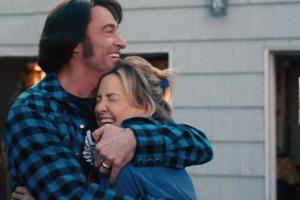
Family guide to new movie releases
'MARTY SUPREME'
Rated R for language throughout, sexual content, some violent content/bloody images and nudity.
What it’s about: A table tennis phenom in 1952 New York City wants to become the greatest player in the world.
The kid attractor factor: This is a drama for adult audiences, not much appeal for younger ones.
Good lessons/bad ...Read more

Family guide to new movie releases
'AVATAR: FIRE AND ASH'
Rated PG-13 for intense sequences of violence and action, bloody images, some strong language, thematic elements and suggestive material.
What it’s about: The third installment in the "Avatar" saga sees Jake Sully and his Na'vi clan continuing to fight to protect Pandora, with the added complication of another warlike ...Read more

Smartphone on your kid's Christmas list? How to know when they're ready
ATLANTA -- Anxious, depressed, isolated and worthless — that’s how the DeKalb County School District said its 91,000 students increasingly feel. From TikTok to YouTube, Georgia’s third-largest school district points to a $4 million social media addiction problem.
Now, paired with new research from the University of Georgia, phone use is ...Read more
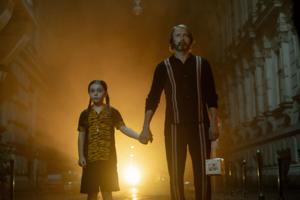
Family guide to new movie releases
'ELLA MCCAY'
Rated PG-13 for strong language, some sexual material and drug content.
What it’s about: A young female politician navigates the demands of her new job as governor, her chaotic family life and her desire to make change in the world.
The kid attractor factor: This is an adult dramedy, not much appeal for kids.
Good lessons/bad ...Read more
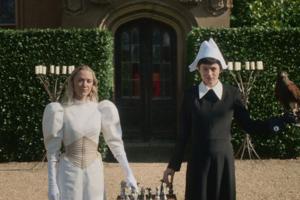
Family guide to new movie releases
'100 NIGHTS OF HERO'
Rated PG-13 for sexual material, some bloody images and language.
What it’s about: In a fantastical ancient world, a bride trapped in a sexless marriage finds liberation through stories.
The kid attractor factor: This is more of a tween-attractor movie, aimed at a young adult audience with its fairy-tale setting, ...Read more

Family guide to new movie releases
'ZOOTOPIA 2'
Rated PG for action/violence and rude humor.
What it’s about: Unlikely buddy cops Judy Hopps and Nick Wilde tackle another case of corruption in Zootopia, where all animals live together in somewhat harmony.
The kid attractor factor: The original is a beloved, Oscar-winning animated film. Kids will be drawn to the style, humor ...Read more

'We can't just teach abstinence': How advice on bed-sharing with a baby is evolving
When Emily Little gave birth to her first child, sleeping together with her baby in bed was a given — despite all the public health messages telling her not to.
"I knew it was something that I wanted to do," said Little, a perinatal health researcher and science communications consultant who has studied cultures around the world that bed-...Read more

Family guide to new movie releases
'WICKED: FOR GOOD'
Rated PG for action/violence, some suggestive material and thematic material.
What it’s about: The second act of the hit Broadway musical adaptation comes to the screen in part two, in which Glinda truly learns what it means to be "good."
The kid attractor factor: Kids will be drawn to the magical world of Oz, the songs, ...Read more

To stave off smartphones, parents answer the landline's call: 'I can't recommend it highly enough'
MINNEAPOLIS -- Teenagers are generally obsessed with their smartphones. So much so that Kristin Hatling’s family recently encountered a gaggle of them who had brought their screens into a resort’s hot tub.
“My daughter, who’s 11, was like, ‘Mom, all they’re doing is looking at their phones and, like, making kissy faces into them. ...Read more
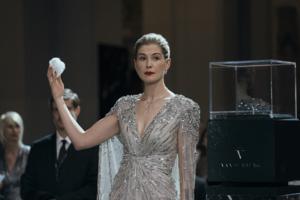
Family guide to new movie releases
'NOW YOU SEE ME: NOW YOU DON'T'
Rated PG-13 for some strong language, violence and suggestive references.
What it’s about: The Horsemen, a group of high-stakes magicians, reunite with a new generation of aspiring magicians to pull off an international diamond heist.
The kid attractor factor: Kids might be drawn to the magic and illusions ...Read more

Family guide to new movie releases
'DIE MY LOVE'
Rated R for sexual content, graphic nudity, language, and some violent content.
What it’s about: A young mother experiences postpartum psychosis while living in a rural small town with her husband and baby.
The kid attractor factor: This is an intense and harrowing depiction of a mental health crisis, not any appeal for kids. ...Read more

Family guide to new movie releases
'STITCH HEAD'
Rated PG for action, thematic elements and mild rude humor.
What it’s about: An animated riff on the Frankenstein story sees a mad professor’s assistant, Stitch Head, learning to embrace his differences and “monstrousness” after a stint in a circus freak show.
The kid attractor factor: The animation style and kid-...Read more

Your teen's AI chatbot buddy can be very dangerous
When social media first began attracting young people more than two decades ago, parents worried about whether their children were chatting with nefarious strangers.
Now, with the emergence of AI chatbots, parents should worry if their children are being seduced by equally dangerous computer programs.
The use of AI chatbots as “friends” is...Read more
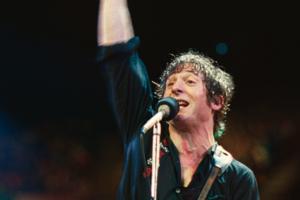
Family guide to new movie releases
SPRINGSTEEN: DELIVER ME FROM NOWHERE
Rated PG-13 for thematic material, some sexuality, strong language and smoking.
What it’s about: A focused look at the writing of Bruce Springsteen's iconic 1982 album, "Nebraska."
The kid attractor factor: This is an adult drama that deals with mature themes, not really much appeal for kids.
Good ...Read more
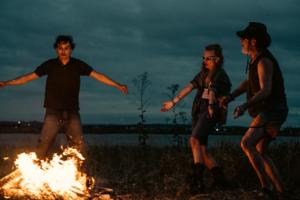
Family guide to new movie releases
'BLACK PHONE 2'
Rated R for strong violent content, gore, teen drug use, and language.
What it’s about: Siblings in 1982 Denver have to fend off the kiddie serial killer the Grabber who haunts them in their dreams.
The kid attractor factor: This is a fairly violent horror movie — not really for kids.
Good lessons/bad lessons: Families ...Read more

The new talk -- The need to discuss AI with kids
“(I)t is a massively more powerful and scary thing than I knew about.” That’s how Adam Raine’s dad characterized ChatGPT when he reviewed his son’s conversations with the AI tool. Adam tragically died by suicide. His parents are now suing OpenAI and Sam Altman, the company’s CEO, based on allegations that the tool contributed to his ...Read more

Family guide to new movie releases
TRON: ARES
Rated PG-13 for violence/action.
What it’s about: The third TRON movie sees the grid invading the real world as two tech companies strive for AI dominance.
The kid attractor factor: Not much. Maybe some appeal for teens in the aesthetic and spectacle.
Good lessons/bad lessons: AI is only as good as the person who wields it. ...Read more
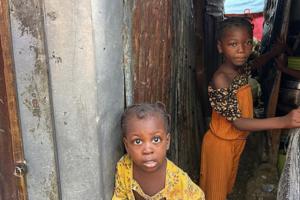
UN: Kids in Haiti losing childhood amid displacements, hunger, violence
The number of children uprooted by Haiti’s spiraling gang violence has nearly doubled in the last year to 680,000, while those in need of humanitarian assistance now stands at just under a quarter of the country’s estimated 12 million population.
Meanwhile, with more than 1,600 schools directly affected by the violence – including 1,080 ...Read more
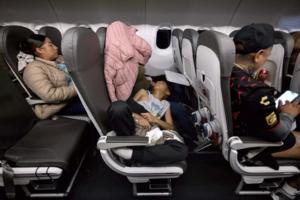
After ICE raids, this Venezuelan mom fled from LA to Mexico. Will she find refuge there?
Jerardyn sat quietly on the bus, her mood relaxed as her eyes scanned the fleeting horizon of Southern California one August afternoon.
But as the U.S.-Mexico border wall, a towering barrier of steel pillars, came into view, she began taking big, deep breaths. Her heart began to race as she clutched her immigration documents and tried to hide ...Read more
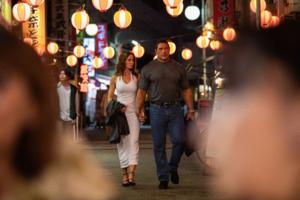
Family guide to new movie releases
'THE SMASHING MACHINE'
Rated R for language and some drug abuse.
What it’s about: A biopic of MMA fighter Mark Kerr, following his career in the late '90s.
The kid attractor factor: This is a serious adult drama, not for younger audiences.
Good lessons/bad lessons: Some of those with the most guts don’t get all the glory.
Violence: ...Read more
Popular Stories
- Smartphone on your kid's Christmas list? How to know when they're ready
- Family guide to new movie releases
- UN: Kids in Haiti losing childhood amid displacements, hunger, violence
- 'We can't just teach abstinence': How advice on bed-sharing with a baby is evolving
- The new talk -- The need to discuss AI with kids








